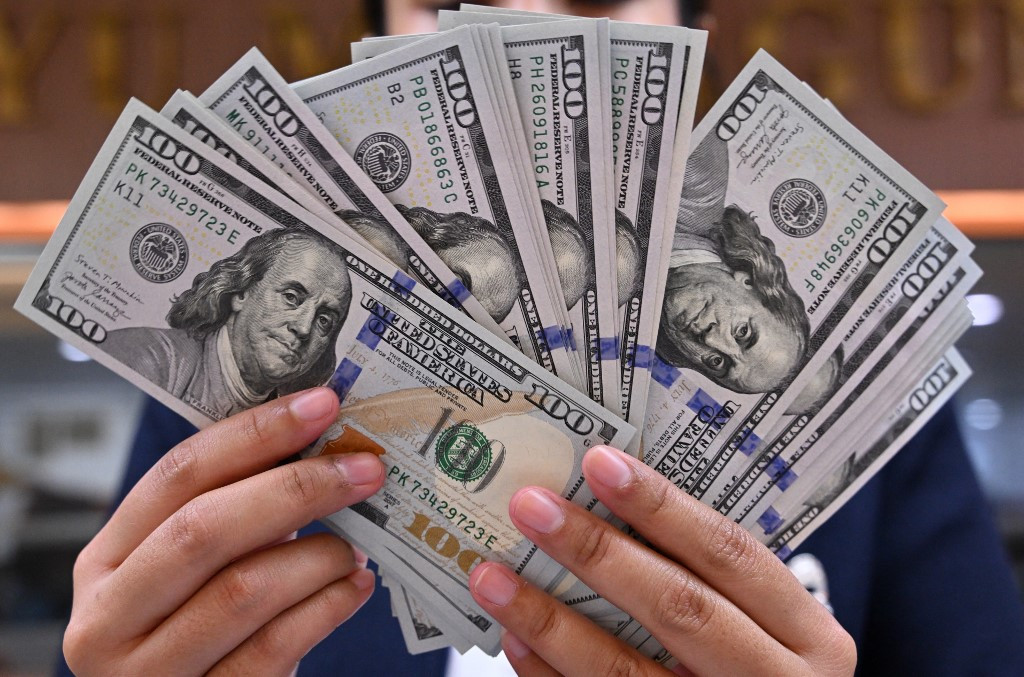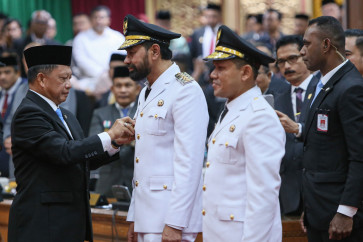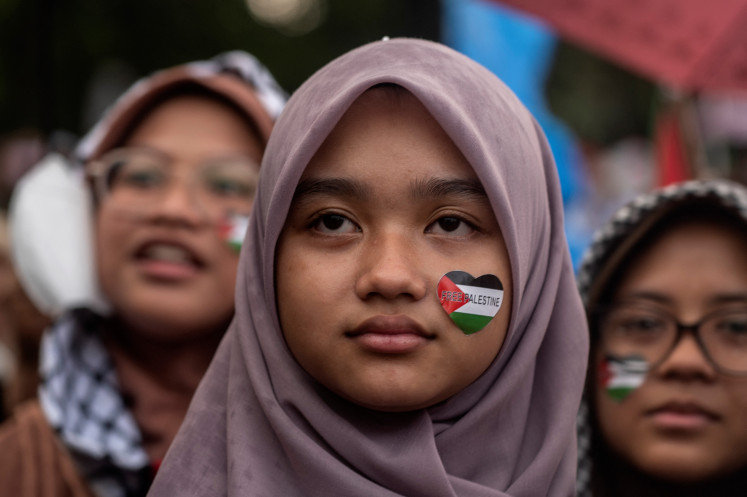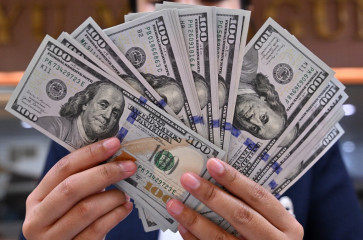The de-dollarization trend and how to benefit from it
The growing trend of de-dollarization, especially on the heels of the MOU to promote local currency use signed last month between the central banks of Indonesia and China as well as the global turmoil following Trump's tariff policy flip-flop, presents a strategic opportunity for Indonesia to strengthen its fiscal and monetary policies.
Change text size
Gift Premium Articles
to Anyone
 A clerk at a Jakarta money changer fans out 100-dollar United States banknotes on May 2, 2024. (AFP/Adek Berry)
A clerk at a Jakarta money changer fans out 100-dollar United States banknotes on May 2, 2024. (AFP/Adek Berry)
I
n times of economic crisis, the United States dollar and US Treasuries are considered a safe haven, to where capital flees from risky financial assets.
As demand for the US dollar and US Treasury bonds increase, the former grows stronger relative to other currencies while the price of the latter goes up and lowers its yield, resulting in cheaper borrowing costs for the US government, businesses and households.
But during the global economic turmoil triggered by President Donald Trump’s “Liberation Day” tariffs, followed by his erratic and arbitrary policies, capital moved the other way. Investors perceived Trump’s tariff policies as a risk to increasing inflation and slowing economic growth, leading US fiscal deficits and debts on an unsustainable trajectory. The US dollar weakened against other currencies and demand for 10-year Treasury bonds declined, lowering its price and increasing its yield.
It is not clear whether these developments represent a short-term aberration from the long-term trend of the dollar’s predominant role in international transactions as the world’s reserve currency.
For over 70 years, the US has enjoyed a unique position in global financial markets, thanks to the size of its gross domestic product, trade liberalization, open markets, technological dominance, institutional strength and economic resilience. The US rule of law still reigns, giving greater protection for foreign investors compared with many other countries.
Its market is still deeper, more liquid, more developed and more efficient than those of other countries. The US dollar has been the default currency for global trade for decades, with contracts, assets and deals all priced and conducted in the greenback.
This system afforded the greatest flexibility to the US, which enjoyed substantial freedom to pursue its domestic policy objectives as well as to run sustained balance of payments deficits, which, according to former French president Valery Giscard d’Estaing, was an “exorbitant privilege”.


















